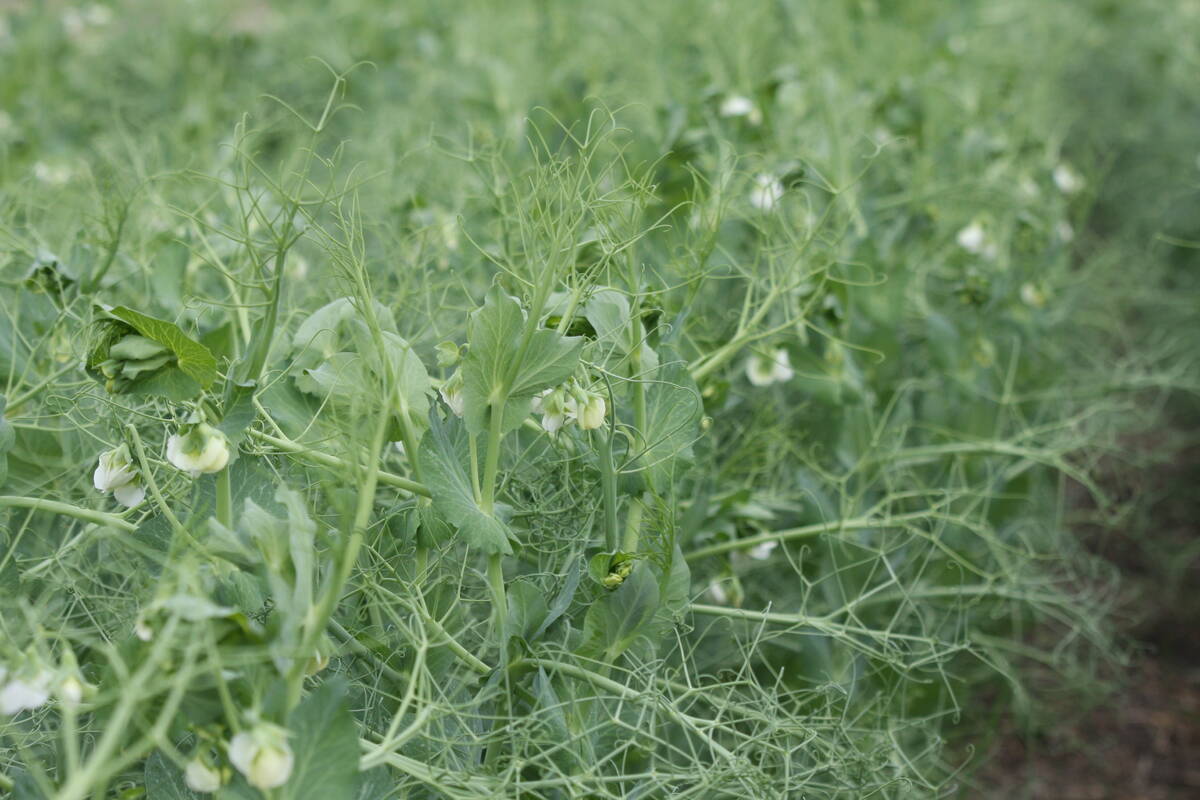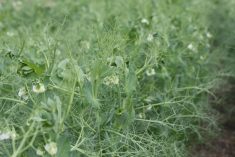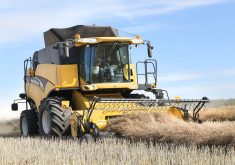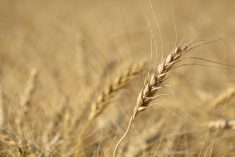Cattle prices drop
Weekly cattle averages were mostly $3 per hundredweight lower, although
some sales midweek were more like $4-$5 lower on a live basis, said
Canfax.
Producers were not willing sellers at these lower levels and the volume
was 17 percent smaller at just over 16,000 head.
Some American buying put a floor on the price by later in the week.
Alberta prices Oct. 31 were steers $95.35-$99.25 per cwt. with one sale
to $100, flat rail $161.85-$163.50 and heifers on the flat rail at
Read Also

Russian pulse trouble reports denied
Russia’s pulse crop will be larger than last year, which won’t help prices rally from their doldrums.
$163.20.
Higher priced boxed beef is having more trouble moving than it was a
month ago. Slower movement is causing a buildup of boxed inventory.
Competition from pork at the retail level has given consumers other
options, said Canfax.
The Montreal wholesale price is up $4 per cwt. in a range of $167-$168.
Calgary is mostly steady with most at $152-$156 and tops to $163.
Canfax said packers have a good supply of live cattle and boxed beef,
so the message in the lower bids on live cattle was clear. For now,
packers are in the driver’s seat.
The U.S. market will provide price direction, but so far has not
increased as much as expected.
Calf prices were mixed, with Alberta averages ranging from $1 higher to
$1 lower than the week before. Price differences from sale to sale were
generally a result of quality differences, said Canfax.
American buyers were still a force in the calf market, especially in
eastern Alberta and Saskatchewan. Farmer-buyers were also active as
they look for a way to use snowed-in crop.
Yearling cattle were $1.50-$2.50 per cwt. higher as a tight supply of
800-900 lb. cattle met strong feedlot demand.
Ring and satellite sales volumes were large. It was the first week this
year for the Alberta volume to break 100,000 head. In fact, it topped
115,000 head, up 19 percent from the previous week and 28 percent
higher than the same week last year.
Slaughter cow prices were under pressure due to heavy offerings and
traded $2 per cwt. lower.
Canfax said runs are expected to stay fairly large over the next couple
of weeks, but it is unlikely prices will see much pressure other than
on plain quality types.
Price ranges were wider during the week and that is likely to continue
through the rest of the fall run. Yearling cattle are expected to
remain strong on light supplies.
Stock cow trade
Bred cows and heifers were slightly stronger on average compared to the
week before, but likely due to more quality in the offering. A full
range of $500-$1,075 was reported on bred cows with the bulk bringing
$700-$1,000.
Bred heifers were $600-$1,225 with most at $800-$1,100. A few cow-calf
pairs brought $800-$1,025.
Hog prices nosedive
Hog cash prices dropped sharply.
Retail demand for U.S. Thanksgiving hams was strong, while wholesale
belly prices rebounded at mid-week, raising the pork cutout value
briefly.
Packers’ daily hog slaughter continued at above year-earlier levels,
but lighter hog carcasses are limiting the increase in pork production.
U.S. slaughter was the largest of the year at 2.15 million head, close
to plant capacity.
As long as packer margins are positive, there will be Saturday kills,
but the numbers of hogs killed the last few Saturdays have been below a
year ago, Manitoba Agriculture said.
The Iowa-Minnesota daily direct hog price (plant mean, 51-52 percent,
lean carcass converted to live weight) started the week at $27.66 US
per cwt., fell to $26.97 midweek, but rose to $28.81 Oct. 31.
Lean hog futures prices bounced back during the week.
On average, the week’s hog cash price was about eight to nine percent
below the previous week’s price.
Maple Leaf Pork’s Brandon plant is operating at full line speed of
about 10,000 hogs per day for one shift.
















